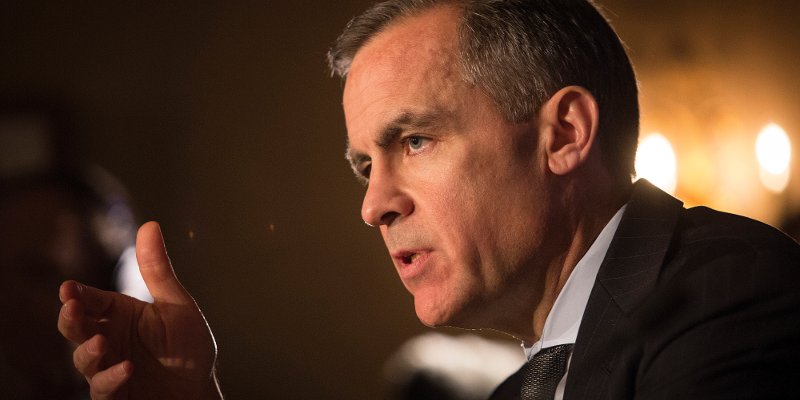Last week’s Bank of England Monetary Policy Committee voted 7–1 to keep interest rates on hold at 0.25% in May.

Tony Ward is chief executive of Clayton Euro Risk
Last week’s Bank of England Monetary Policy Committee (MPC) voted 7–1 to keep interest rates on hold at 0.25% in May. The committee warned that the fall in the value of the pound since last June’s Brexit referendum was likely to push real post-tax household income growth to zero later this year. The MPC also voted unanimously to keep its stockpile of asset purchases at £435bn. No surprises there, then.
In his Quarterly Inflation Report, Mark Carney (pictured), governor of the Bank of England warned of a consumer spending squeeze as inflation rises and real wages fall. He said that this year will be ‘a more challenging time for British households’ and ‘wages won't keep up with prices’. He was upbeat about wage growth beyond 2017 – but only if the government secures a ‘smooth’ exit from the EU. Mr Carney characterised this as the UK securing ‘an agreement about future trading arrangements and there will be a transition, or an implementation period, from the negotiation to that new agreement’.
Hmmm, I hate to say it but my prediction is that our negotiations with the EU will be anything but smooth. We are in for a rough ride with our Brexit discussions and it will be a long and unwieldy process. This, in turn, will have an enormous impact on monetary decisions. Lucy O'Carroll, chief economist at Aberdeen Asset Management, said: “The Bank of England is stuck between a rock and hard place. It has to base its forecasts on a view of the Brexit deal but, with so little to go on at present, it's not an easy judgement. To say that is far from certain is a huge understatement. Governor Carney acknowledges the risks, but the weight of uncertainty – and therefore frailty of the forecasts – does undermine the Bank's relatively positive message.”
Indeed.
And what does this mean for interest rates? Economists have suggested the Bank is more likely to keep interest rates on hold as negotiations with Brussels on the UK’s exit progress. “We stick with our view that the economic data will begin to roll over in response to Brexit uncertainty before the MPC gets a chance to raise rates – and that it might be another two years or more before the Bank can tighten,” said analysts at Nomura.
Ultra-low interest rates and other so-called ‘unconventional monetary policies’ may have been helpful in the past – perhaps essential at various points – but today they are as much a part of the problem as its solution. In my opinion, the Bank lowered rates too soon after the EU referendum vote, as a wave of panic broke. Now, we are stuck working within a low interest rate environment which has become the norm. This doesn’t sit well with me. However, with a difficult period ahead of us while we negotiate our leaving conditions from the EU, it would seem foolhardy for the Bank to risk a rate rise.
Mark Carney did perhaps hint that there could be some light at the end of the tunnel. A tightening labour market, he said, ought to mean that the resumption of real wage growth two or three years down the line would allow for slightly higher interest rates that the markets are expecting. Yet haven’t we heard this before? And who knows what lies ahead amongst all the uncertainties of Brexit? From a cynical point of view, there may be politics at play here. Too much gloom and doom might not make an appropriate message prior to the general election.
In this situation, it is of course difficult to know how the Bank could proceed other than continue with its current policy. To raise rates now, or try to reverse the £435bn of quantitative easing as some analysts have suggested, would not be appropriate as we see signs of a slowing economy against the backdrop of uncertainty.
Yet leaving things as they are doesn’t feel great either. The longer rates are held so low, the more it damages the supply side of the economy. Bad, unproductive activity or ‘zombification’ will become the norm.
Former Bank of England official Sushil Wadhwani has claimed that zero interest rates and tools such as quantitative easing threatened to undermine central bank independence. “Extensive use of negative rates is very corrosive to confidence,” he said. Policies such as QE make ‘independence less plausible’.
I agree. But with great reluctance, I predict low rates are here for some time to come.



